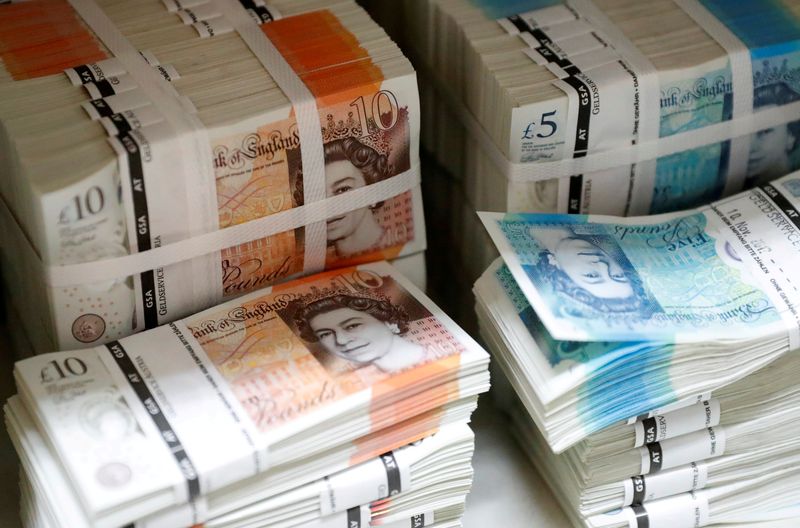By Amanda Cooper
LONDON (Reuters) - The pound rose on Friday after data showed UK retail sales volumes rose at their fastest pace in nearly two years, as renewed consumer confidence helped offset the sting of high inflation and rates.
Between February and April, sales rose 0.8% from the previous three months, the biggest such increase since the three months to August 2021, according to data from the Office for National Statistics.
Sterling was last up 0.3% against the dollar at $1.2355.
The pound has fallen by 1.9% in May, heading for its first monthly decline since February, largely due to a recent swell in investor demand for the U.S. dollar's safe-haven properties. Against the euro, sterling eased 0.1% to 86.95 pence.
Data this week showed UK inflation fell to 8.4% in April, less than expected, while core price pressures hit 31-year highs, giving BoE policymakers no room for let-up in their quest to tackle price pressures.
This week, UK government borrowing rates have shot to their highest since the bond-market meltdown last September after then-Prime Minister Liz Truss' damaging budget plans.
Interest rates in Britain have already risen to their highest in 16 years, at 4.50%, and are now expected to end this year at 5.50%, marking a stark turnaround from just one week ago, when money markets showed traders expected a peak of 4.80% by November.
Benchmark 10-year gilt yields are now around 4.378%, having risen nearly 70 basis points in May alone.
Gilts are trading at their largest premium to 10-year U.S. Treasuries in over 14 years, reflecting the greater degree of risk investors attach to UK government debt right now, even in light of the tussle over the U.S. government's borrowing limit.
Bank of England Governor Andrew Bailey said this week he was concerned about the risk of "sticky and stubborn" inflation over the summer after data showed food prices still rising sharply despite a drop back to single digits for the headline inflation rate in April.

"While the UK consumer is feeling the effects of much higher prices than the U.S., it should also be remembered that inflation in the U.S. peaked much earlier, back in the summer, which means it could take another five months before UK prices fall to U.S. levels, and even then, core prices might not come down in a hurry," CMC Markets chief markets strategist Michael Hewson said.
($1 = 0.7923 pounds)